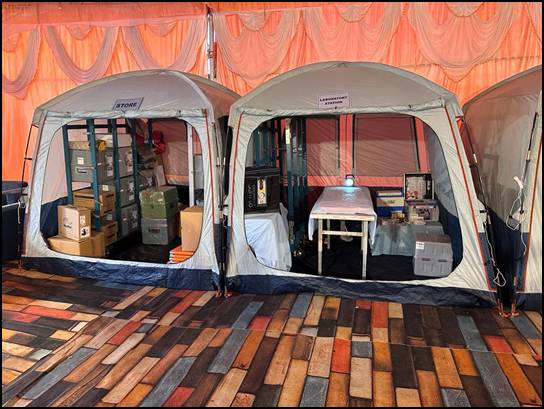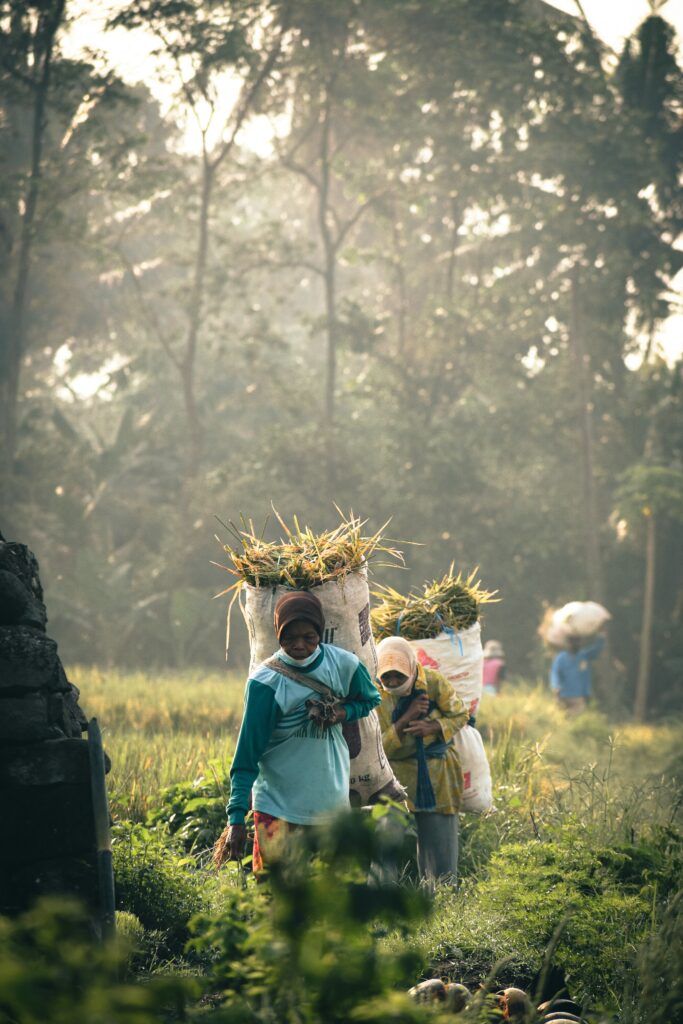In an era where rapid medical response is crucial during disasters, Project BHISHM (Bharat Health Initiative for Sahyog, Hita, and Maitri) emerges as a groundbreaking initiative by the Indian government. This project introduces portable, air-droppable hospitals, known as Arogya Maitri Disaster Management Cubes, designed to provide immediate medical care in crisis situations.

- Source: PIB
Objectives of Project BHISHM
- Rapid Deployment: Ensure swift medical assistance during disasters by deploying portable hospitals within minutes.
- Comprehensive Care: Provide facilities ranging from basic first aid to advanced surgical interventions.
- Global Humanitarian Aid: Extend support to other nations during emergencies, showcasing India’s commitment to global health.
Key Features of the Project BHISHM
- Modular Design: Each unit comprises 72 detachable mini-cubes, facilitating easy transportation and assembly.
- Advanced Medical Equipment: Equipped with operation theaters, mini-ICUs, ventilators, X-ray machines, and blood testing devices.
- AI Integration: Utilizes artificial intelligence and data analytics for real-time monitoring and efficient management of medical services.
- Rapid Deployment: Operational within 12 minutes of deployment, crucial for saving lives during the golden hour of emergencies.
- Sustainable Power: Incorporates solar energy and batteries, ensuring functionality in remote areas without reliable power sources.
- Lightweight and Portable: Each cube weighs under 20 kg, allowing transportation by hand, cycle, or drone.
Notable Deployments
- Ayodhya (January 2024): Two BHISHM units were deployed during the ‘Pran Pratishtha’ ceremony, ensuring medical readiness for over 8,000 attendees.
- Ukraine (2024): India gifted four BHISHM cubes to Ukraine, providing essential medical support amidst ongoing conflicts.
- High-Altitude Airdrop (August 2024): The Indian Air Force successfully airdropped a BHISHM unit at approximately 15,000 feet, demonstrating its versatility in challenging terrains.
Global Impact
Project BHISHM not only strengthens India’s disaster response capabilities but also positions the nation as a key player in global humanitarian efforts. By providing these portable hospitals to countries in need, India reinforces its commitment to global health and solidarity.
Challenges and Future Prospects
While Project BHISHM showcases significant advancements, challenges such as ensuring consistent training for rapid deployment teams and maintaining the equipment’s readiness persist. Future developments aim to:
- Enhance AI Capabilities: Further integrate AI for predictive analytics in disaster scenarios.
- Expand Global Reach: Collaborate with more countries to provide BHISHM units as part of humanitarian aid.
- Continuous Training: Establish regular training programs for personnel to ensure efficient deployment and operation.
Official Source for More Info:
Press Information Bureau – Indigenous Mobile Hospital (BHISHM) Deployed in Ayodhya
Related Schemes:
PM BJP; AYUSHMAN BHARAT; & Others
#AMRUT #AMRUTScheme #AtalRejuvenationScheme #Class12Economics #ClassXIIMacro #EconomicsforUPSC #EU-India FTA #EU-IndTrade Deal #GovernmentBudgetClass12 #JalJeevanMission #MinistryofAgricultureSchemes #MinistryofEducation #MinistryofJalShakti #MinistryofPanchayatiRaj #MinistryofTribalAffairs #MissionSUJALAM #MoA&FWSchemes #MODIGovt3.0 #MoneyMultiplier #MoNRE #MoSD&E #Motherofalldeals #NamamiGange #NationalMissionforCleanGanga #PESARankings2025 #PLIScheme #PMBhartiyaJanaushadhiPariyojana #PMDeVINEScheme #PMGATISHAKTI #PM Janjatiya Unnat Gram Abhiyan #PMKaushalVikasYojana #PMKISAN #PMKUSUM #PMKVY #PMMatsyaSampada #PMMatsyaSampadaSchemeUPSC #PMSHRI #PMSHRIScheme #PMSuryaGharMuftBijliYojana #PMSVAMITVASCHEME #RashtriyaGokulMission #SAKSHAMScheme #UTPRERAK #UtprerakScheme #VidyanjaliScheme


